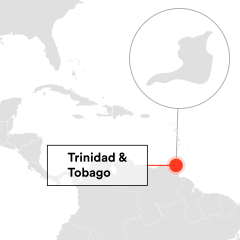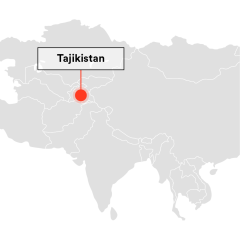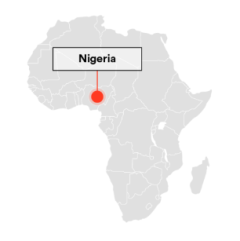Support capacity building for WROs and CSOs

Support capacity building for WROs and CSOs
Case Studies

In 2022, the Spotlight Initiative programme in Trinidad and Tobago aimed to improve CSOs’ access to grants through a three-tiered approach of stakeholder consultations, capacity building, and adapting processes to be more context-relevant. The objective was to support resource mobilisation and increase institutional, operational and technical capacities for long-term and sustainable work on EVAWG.
The programme began by consulting a Civil Society National Reference Group to discuss feedback on Spotlight Initiative’s funding opportunities and requirements. CSOs provided feedback that the timeframe for responding to adverts was too short, that the requirements were not contextually appropriate and were too stringent, that the language was difficult to understand, and that the structure of the adverts was unclear. Following this feedback, the programme held additional townhall meetings, field visits to communities, and regional events and meetings to validate this feedback and gather feedback from other CSOs with diverse ages, locations, communities, and those representing groups who are often excluded from programmes.
Building on the lessons identified through this process, the Spotlight Initiative programme in Trinidad and Tobago developed simplified and easy-to-understand advertisements and templates for grant applications. These templates included “Top Tips” and guidelines for how to complete sections. In addition, rotating advertisements were posted with no submission deadline and the requirements for grant-making were changed to focus less on technically advanced proposals, and more on prioritising the inclusion of grassroots CSOs and disadvantaged groups.
The Spotlight Initiative programme introduced town halls to accompany each advertisement to provide CSOs with a detailed walk-through of the submission templates and guidelines for applying. They also recruited a team of coaches to develop and implement a comprehensive capacity building training for CSOs who received grants. This commitment to capacity building supported the Spotlight Initiative programme in Trinidad and Tobago to reduce the requirement for technically advanced applications.
Between 2020 and 2022, following the introduction of this capacity building and re-structuring of grant-processes, an additional 15 organisations received approval and accessed grant funding through this mechanism. All these organisations were new to the UN system, and it was the first time they received funding to support internal capacity building and strengthening for their programmes, services, systems and expertise.



In 2021, Spotlight Initiative in Tajikistan supported the establishment of the School of Gender Activists (SGA). This initiative is the first-of-its-kind, aimed at building the capacities of CSOs working to end VAWG. The SGA works to train up local experts who can advise the Committee of Women and Family Affairs, as well as other ministries implementing and promoting gender policies in Tajikistan. The programme to establish the SGA was split into two phases. The first focused on individuals already working within NGOs, while the second targeted youth aged 18-35. The programme also engaged with women living with HIV and people with disabilities to ensure adherence to the principle of “Leave No One Behind”. During phases 1 and 2, the SGA trained approximately 56 participants (47 of whom were women).
The SGA focused on curricula covering gender rights, gender equality concepts, local and international laws and standards on gender, gender budgeting, the history of feminism, gender advocacy, gender analysis and tools to identify and prevent VAWG. Students were also offered opportunities to engage directly with parliament, ombudsman, the supreme court and other organisations focused on gender-related initiatives. In addition, government officials, CSO representatives and women leaders from across Tajikistan were invited to conduct training sessions and offer practical insights on gender-centric work practices.
The SGA fostered a multi-faceted and comprehensive learning opportunity by bringing together participants from diverse backgrounds including gender experts and activists, youth, disabled people, CSOs and others working in the gender space. In addition, graduates valued the practical learning opportunities provided, recognising the importance of having practical opportunities through which to apply their knowledge. Graduates have also demonstrated commitment to the sustainability of the programme, creating opportunities to build connections through the establishment of the Network of the School of Gender Advocates.
Following on from their engagement in the SGA, some graduates went on to conduct similar training in their workplaces and communities. At least 200 people (50 men and 150 women and girls) have been trained by SGA graduates to date. Other SGA graduates became members of CSO advisory boards of UN Agencies or gender specialists in their own organisations. As a consequence of the SGA’s efforts, Tajikistan now has a stronger pool of local gender experts across civil society, which can support gender equality efforts more broadly.



In 2019, the United Nations’ Women's Peace and Humanitarian Fund (WPHF) and Spotlight Initiative established a strategic partnership to channel funding to civil society organizations (CSOs) working to end violence against women and girls (VAWG) in conflict and crisis situations. WPHF and Spotlight Initiative collaborated to strengthen networking and peer learning among CSO partners from across the world through the Global Learning Hub (L-HUB) online events.
As part of the WPHF and Spotlight Initiative partnership, support was provided to the CSO Green Concern for Development (GREENCODE), in Nigeria. As part of this support, GREENCODE provided capacity building to women’s community groups, and successfully mobilized them in a movement aimed at eradicating VAWG.
In 2021, in consortium with other NGOs, such as Rural Women and Youth Development Initiatives (RUWADY) and Learning through Skills Acquisition Initiative (LETSAI), GREENCODE started mapping the different women’s groups present in Borno state, identifying their interests, areas of work and operational constraints. Based on these findings, GREENCODE provided training sessions, mentoring and coaching to strengthen the groups’ leadership and enhance their capacity to run their organizations with impact.
GREENCODE also provided legal and financial support to small women’s groups and community-based organizations (CBOs) to obtain legal registration. GREENCODE also led training in financial, administrative management and communications for these groups. GREENCODE participated in the CBOs’ procurement committees as an observer to improve their procurement policies and processes. In addition, GREENCODE supported coalition building among the groups, working to raise their awareness of the advantages and disadvantages to working in a coalition. They also helped to ensure that these grassroots organisations and their members were aware of their basic rights and capacities to participate in social and community life.



In 2019, the United Nations’ Women's Peace and Humanitarian Fund (WPHF) and Spotlight Initiative established a strategic partnership to channel funding to civil society organizations (CSOs) working to end violence against women and girls (VAWG) in conflict and crisis situations.
The lack of financial resources is a common constraint for grassroots women’s groups in Uganda. Any coalition’s work must be accompanied by economic empowerment. As part of the partnership between the WPHF and Spotlight Initiative, Uganda Women’s Network (UWONET) received support. As part of this partnership, UWONET trained women’s groups on proposal writing for fundraising and identified strategies for them to access new resources to increase their sustainability and scale up operations. Strategies included encouraging the groups to apply for funding in consortium or through local women’s organizations.
Challenges around leadership, organizational structures and coordination can make it hard to build solid, inclusive and sustainable women’s movements and EVAWG coalitions. Building a shared vision and consensus between women’s groups with divergent interests can be a major challenge for all coalitions. UWONET’s district networks helped aggregate efforts, facilitated sisterhood spaces and disseminated the Uganda women’s manifesto, to highlight key concerns of the women’s movement among different women’s groups to enable them to engage with policy makers and hold them accountable. UWONET also invested in translation of resources and messaging in local language to engage a range of community members.







